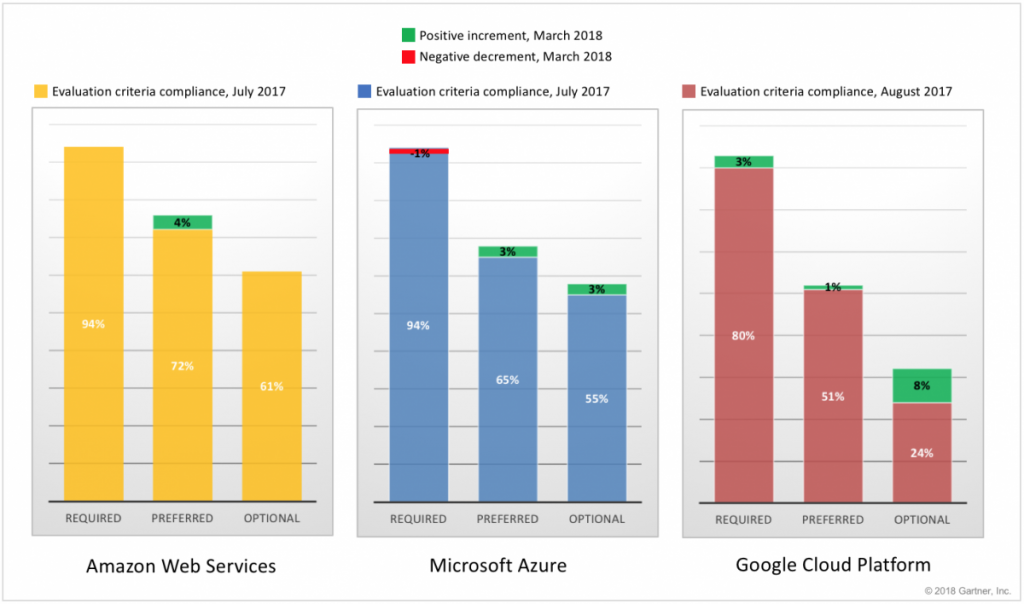This post originally appeared on the Gartner Blog Network.
Blockchain technologies provide ledger databases whose records are immutable and cryptographically-signed using a distributed consensus or validation protocol. These characteristics contributed to the popularity of blockchain to power transaction execution in multiparty business environments. With blockchain, multiple parties can agree on transaction details while still guaranteeing correctness and prevent tampering, without having to rely on a trusted centralized authority.

To provide such functionality and just like any other database, blockchain technologies are built around platforms, infrastructure, APIs and management tools. Cloud computing is a well-oiled model that provides easy access to all these technology components, in addition to services and capabilities for application development and integration. While cloud computing can certainly help accelerate the execution of blockchain projects, it is also a heavily centralized model, specifically around few hyperscale megavendors. Conversely, the effectiveness of blockchain relies on decentralization as one of its core principles .
Full decentralization is especially important for public blockchains (such as Bitcoin) where anybody is free to participate and transact. Conversely, enterprise blockchains may accept to trade aspects of decentralization (such as a single technology provider) in exchange of easier access to technologies and a lower management overhead.
All hyperscale cloud providers have launched blockchain cloud services in the last 18 months to help organization with their blockchain projects. These services build on the strength of each provider (in terms of infrastructure, platform and application development capabilities) but also aim to facilitate the use of open-source DLT frameworks such as Ethereum, Hyperledger Fabric and Quorum.
On my recently published research “Solution Comparison for Blockchain Cloud Services From Leading Public Cloud Providers” (paywall), I have assessed and compared the blockchain-related cloud services offered by:
- Alibaba Cloud
- Amazon Web Services
- IBM
- Microsoft
- Oracle
The research provides a heatmap of the capabilities provided by each vendor, allowing Gartner clients to quickly assess their strengths and weaknesses in this space. The research also provides all the details behind the attributed scores for those technical professionals who want to dig deeper into each vendor’s offering. Some example of the comparison criteria include:
- Number of Supported DLTs
- Blockchain Community Involvement
- Infrastructure Supported
- Fully Managed Ledger Service
- Smart Contract Management
Like most blockchain technologies, also blockchain cloud services are still immature, especially in light of the rapidly evolving landscape of DLT frameworks. As a demonstration of that, many of the assessed cloud services have been launched during the conduction of this research, which required multiple re-assessements of the vendor offerings. Some vendors also launched additional services and features after the publication of this research, for example:
- “Amazon Managed Blockchain now generally available” – April 30, 2019
- “Microsoft launches fully managed Azure Blockchain Service” – May 2, 2019
To know more about this topic or if you would like to discuss further, you can read the research note at “Solution Comparison for Blockchain Cloud Services From Leading Public Cloud Providers” (paywall). You can also reach out to your Gartner representative to schedule an inquiry call with me. Looking forward to hearing your comments!



